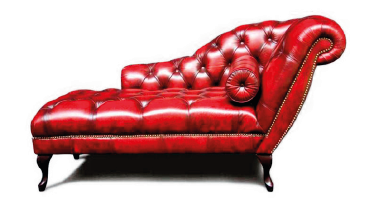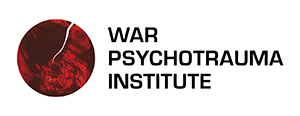Work during
the war
PSYCHOTHERAPY
TRAINING
RESEARCH
We are working with victims from the first day of
the war in Ukraine.
We have a Telegram channel (Russian) about military PTSD and crisis psychological help.
We blog on Patreon (Russian and English). Subscribers have access to fragments of the book and can get some merch as a gift.
We provide training for psychologists: webinars on war, clinical, and transgenerational trauma.
IDEA
Why Poppies? This is my metaphor of war: burnt soil sprinkled with scarlet blood. With life growing out of it. With the sun rising above it.
The idea of the War Psychotrauma Institute
emerged out of the psychological assistance to
victims of war in Ukraine: to unite specialists
who work with mental health in extreme conditions.
We, Ukrainian trauma therapists, are unique:
in the face of the full-scale war that has entered our homes, despite the lack of skills to work with the enormous number and multilayered nature of psychological traumas, we find the inner resources to work daily, round the clock for many months on end.
In no country in the world have psychologists dealt or are dealing with what we are forced to cope with
The way we help our people not in cozy offices but in real contexts of front-line,
terrorist attacks, missile strikes, bombings, occupation, blackouts, and economic crisis – deserves the attention of the entire international psychological community.
Now we are negotiating with our foreign colleagues about formats for exchanging experience. We are looking for funding to arrange research and interviews. We created a logo, and now we are registering a trademark. We give lectures at human rights organizations, international companies, universities and invite colleagues to conduct their own programs based on the Institute.
We are at the beginning.
Join.


Author’s course “War Won’t Write Off”

The course includes 36 webinars on mental health during military actions and terrorist attacks in Ukraine. It consists of 3 modules: “War Traumas”; “Fundamentals of Clinical Psychology” and “Transgenerational Trauma”. 9 days of webinars and 3 months of intervisions, access to the mini-library.
Training programs (for psychologists and clients)
The lecture topics are revealed through a well-defined structure
of the material, supported by graphic design slides
Neurophysiology of shocks
2 academic hours. The Shock of War. Stage 1: Threat and confrontation. Stage 2: Resistance, opposition. Stage 3: Shock. Stage 4: Recovery. The essence of trauma therapy.
Panic and anxiety attacks
2 academic hours. Phenomenology. The difference between panic attacks and anxiety attacks. Implications. Psychopharma (overview, no medication recommendations).
Loss and Grief
2 academic hours. Trauma is always a loss. Stages of experiencing grief. Reasons for different reactions. Healing the trauma.
Depression: diagnosis and therapy
4 academic hours. Causes, initiation, development. Types of depression. ICD-11 and DSM-5 diagnoses. Raptus. Diagnosis and therapy.
Anatomy of Fear
2 academic hours. How fear works. Fright, fear, anxiety, panic: what’s the difference. Is it okay to be afraid? What to lean on? Self-help actions.
PTSD: postponedbut not abolished pain
3 academic hours. History case: The Vietnam War. ICD-11 and DSM-5 diagnoses. Symptom-complex. Diagnosis and therapy.
War trauma
8 academic hours. Trauma as a triggering event. Loss and grief. Survivor guilt. Panic attacks. Depressions. PTSD, complex PTSD.
Trauma client and trauma therapist
4 academic hours.
Unique criteria and content of trauma. Examples of cases. Trauma therapist: work setting and rapport.
Training programs (for psychologists and clients)
The lecture topics are revealed through a well-defined structure of the material, supported by graphic design slides
Neurophysiology of shocks
2 academic hours. The Shock of War. Stage 1: Threat and confrontation. Stage 2: Resistance, opposition. Stage 3: Shock. Stage 4: Recovery. The essence of trauma therapy.
Panic and anxiety attacks
2 academic hours. Phenomenology. The difference between panic attacks and anxiety attacks. Implications. Psychopharma (overview, no medication recommendations).
Loss and Grief
2 academic hours. Trauma is always a loss. Stages of experiencing grief. Reasons for different reactions. Healing the trauma.
Depression: diagnosis and therapy
4 academic hours. Causes, initiation, development. Types of depression. ICD-11 and DSM-5 diagnoses. Raptus. Diagnosis and therapy.
Anatomy of Fear
2 academic hours. How fear works. Fright, fear, anxiety, panic: what’s the difference. Is it okay to be afraid? What to lean on? Self-help actions.
PTSD: postponedbut not abolished pain
3 academic hours. History case: The Vietnam War. ICD-11 and DSM-5 diagnoses. Symptom-complex. Diagnosis and therapy.
War trauma
8 academic hours. Trauma as a triggering event. Loss and grief. Survivor guilt. Panic attacks. Depressions. PTSD, complex PTSD.
Trauma client and trauma therapist
4 academic hours.
Unique criteria and content of trauma. Examples of cases. Trauma therapist: work setting and rapport.
OPEN FOR COOPERATION
We work with corporate clients
Ukraine’s economy is struggling as never before. The war has affected not only assets and business processes but also our human resources. Every employee faced a complex of psychotraumas: separation from loved ones or even losing them, the horror of missile strikes, migration stress, loss of psychological stability and a sense of safety.
We offer psychotherapeutic assistance to the staff of different companies: individual counseling and group therapy
We work with universities

Recognition of the Sophia Institute for Development and Therapy in Poland for
conducting webinars “Neurophysiology of Shocks” and “PTSD, Panic Attacks,
Depression” in September 2022






